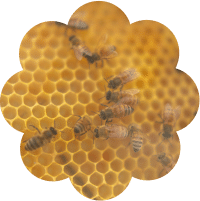
Managed Beehives for Your Property in the Boston Area

Since 2010, The Best Bees Company has offered a unique, turnkey way for individuals and organizations to make a positive impact on the environment. Founded in Boston, Best Bees is the leading professional beekeeping service in the greater Boston area.

Our Mission
To expand the bee population while improving the health of honey bees and other pollinators here in Massachusetts and across the world. Our locally certified beekeepers install and manage hives on your property and use the data we collect to drive the science of pollinator health forward with scientific partners that include Urban Bee Lab, NASA, MIT and National Geographic.


Our Reach Across Massachusetts
300+ Residential Clients
70+ Commercial Clients
600+ Hives
Beekeeping for Your Residential Backyard
If you'd like to save bees, build a healthier environment, pollinate your garden, and have your own honey harvest, then our residential service is perfect for you! We offer turnkey beekeeping, honey harvesting, and DNA analysis designed for homeowners in a wide range of environments. Regardless of the size of your property – whether you garden on a balcony, or have acres of land – we can set up and tend a hive (or several hives!) for you.
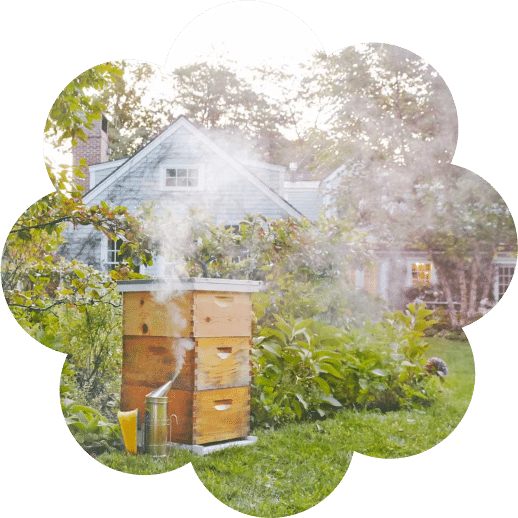
Expert Beekeeping
Hand-crafted, all natural equipment will be installed on your property. Ask us about custom-painted hives!
Colonies of docile honeybees will be introduced into your hive at the start of the season.
We can offer suggestions for pollinator-friendly trees, shrubs, and plants appropriate for your garden.
Our beekeepers will visit your hive for monthly maintenance visits.
You'll receive reports on the health of your hive after each beekeeper visit.
Full-time customer service team will be available to you by phone or email.
Honey Harvesting
When the bees produce surplus honey, we'll harvest, process, bottle, and deliver it for you.
If your bees need all the honey they've produced to get through the winter, we'll share surplus honey with you that we collect from hives at our partner apiaries.
Our residential beekeeping clients receive a Honey Guarantee of 5 pounds of honey per hive each year.
All honey from Best Bees is raw, unfiltered honey, delivered with custom honey labels with your name and the honey harvest date.
Data & Analysis On Your Hive
Our beekeepers will collect hive data upon each visit that will go into our proprietary hive health program 'Bzzz.'
This data is shared with our in-house scientific team who partner with other research institutions to study the data from your hive and our network of hives across the country.
As your hive data is studied and shared with partners, we will update you on scientific learnings and discoveries that are driving pollinator health forward.
For an additional fee, we can analyze the DNA analysis of your honey, reporting back to you on the number of species they've pollinated and the relative importance of each species to your bees.
Beekeeping for Your Commercial Property
We offer innovative solutions that can help bring your corporate sustainability programs to life. These include the highest standards of beekeeping, as well as developed workshops and programs that will engage your community – employees, guests, tenants, community leaders and the public – in your sustainability work.
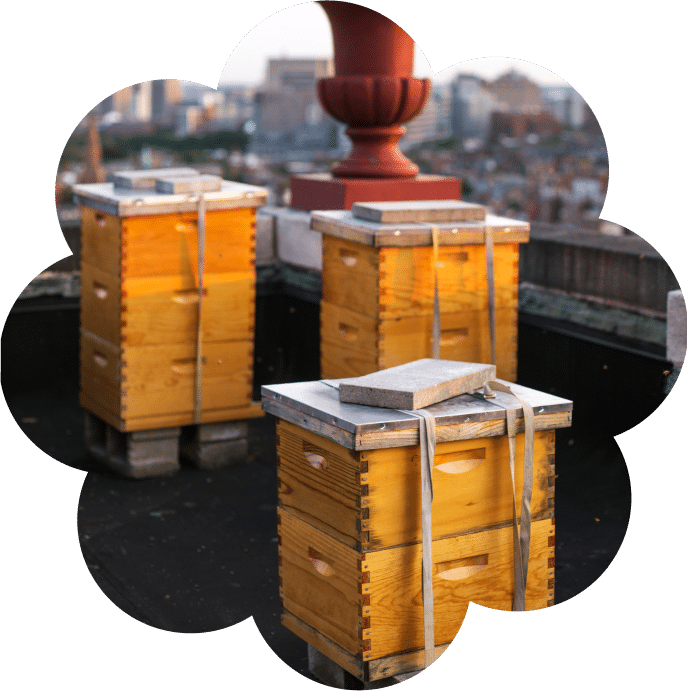
Expert Beekeeping
Hand-crafted, all natural equipment will be installed on your property. Ask us about custom-painted hives!
Colonies of docile honeybees will be introduced into your hives at the start of the season.
We can offer suggestions for pollinator-friendly trees, shrubs, and plants appropriate for your garden.
Our beekeepers will visit your hive for monthly maintenance visits.
You'll receive reports on the health of your hive after each beekeeper visit.
Full-time customer service team will be available to you by phone or email.
Honey Harvesting
When the bees produce surplus honey, we'll harvest, process, bottle, and deliver it for you.
If your bees need all the honey they've produced to get through the winter, we'll share surplus honey with you that we collect from hives at our partner apiaries.
Our corporate beekeeping clients receive a Honey Guarantee of 10 pounds of honey per hive each year.
All honey from Best Bees is raw, unfiltered honey, delivered with custom honey labels with your name and the honey harvest date.
Our beekeeping clients have the option to choose their jar size, and add their own company logo to our cobranded honey labels.
Data & Analysis On Your Hive
Our beekeepers will collect hive data upon each visit that will go into our proprietary hive health program 'Bzzz.'
This data is shared with our in-house scientific team who partner with other research institutions to study the data from your hive and our network of hives across the country.
As your hive data is studied and shared with partners, we will update you on scientific learnings and discoveries that are driving pollinator health forward.
For an additional fee, we can analyze the DNA analysis of your honey, reporting back to you on the number of species they've pollinated and the relative importance of each species to your bees.
Products & Programming
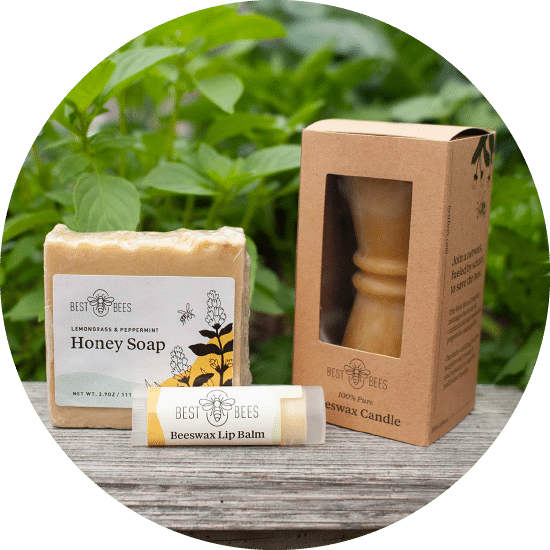
Corporate gifts
We offer many bee products that make great gifts for your tenants, employees, or stakeholders.
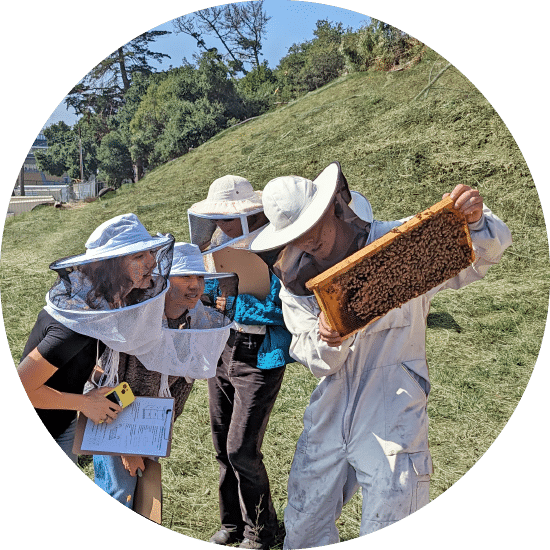
Educational Events
Engage your community with educational and hands-on events run by our beekeepers.

Advanced reporting
With advanced data collection at the hive, we deliver bee health and biodiversity metrics.
How Professional Beekeeping Works

Installation
We help you choose an ideal location to establish one or more beehives at your home or workplace.

Maintenance
Our impassioned and experienced beekeepers service your beehives once a month, providing high-quality care and detailed reports.
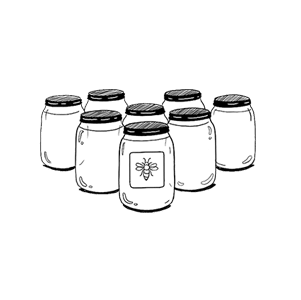
Harvesting
You keep 100% of the raw honey produced. We'll handle the rest – small batch extraction and bottling with personalized labels.

Research
At every visit, we collect data and share it with our research partners to advance the science of beekeeping and improve the health of pollinators worldwide.
What's Included
What's Included
- Site Evaluation
- Hand-crafted, all-natural beehive equipment installed onsite
- A colony of docile honey bees (Apis mellifera ligustica)
- Monthly maintenance visits and follow up reports
- Advanced scheduling so you can alert your team
- Full-time customer service team available by phone or email
- Raw honey, harvested and bottled just for you
- Replacement colonies provided at no cost
- Fully insured professional service
Boston Service Area
We service hives in a 90-minute driving radius around our Boston headquarters, including the following counties in Massachusetts:
Barnstable
Essex
Norfolk
Bristol
Middlesex
Suffolk
Dukes
Plymouth
Worcester
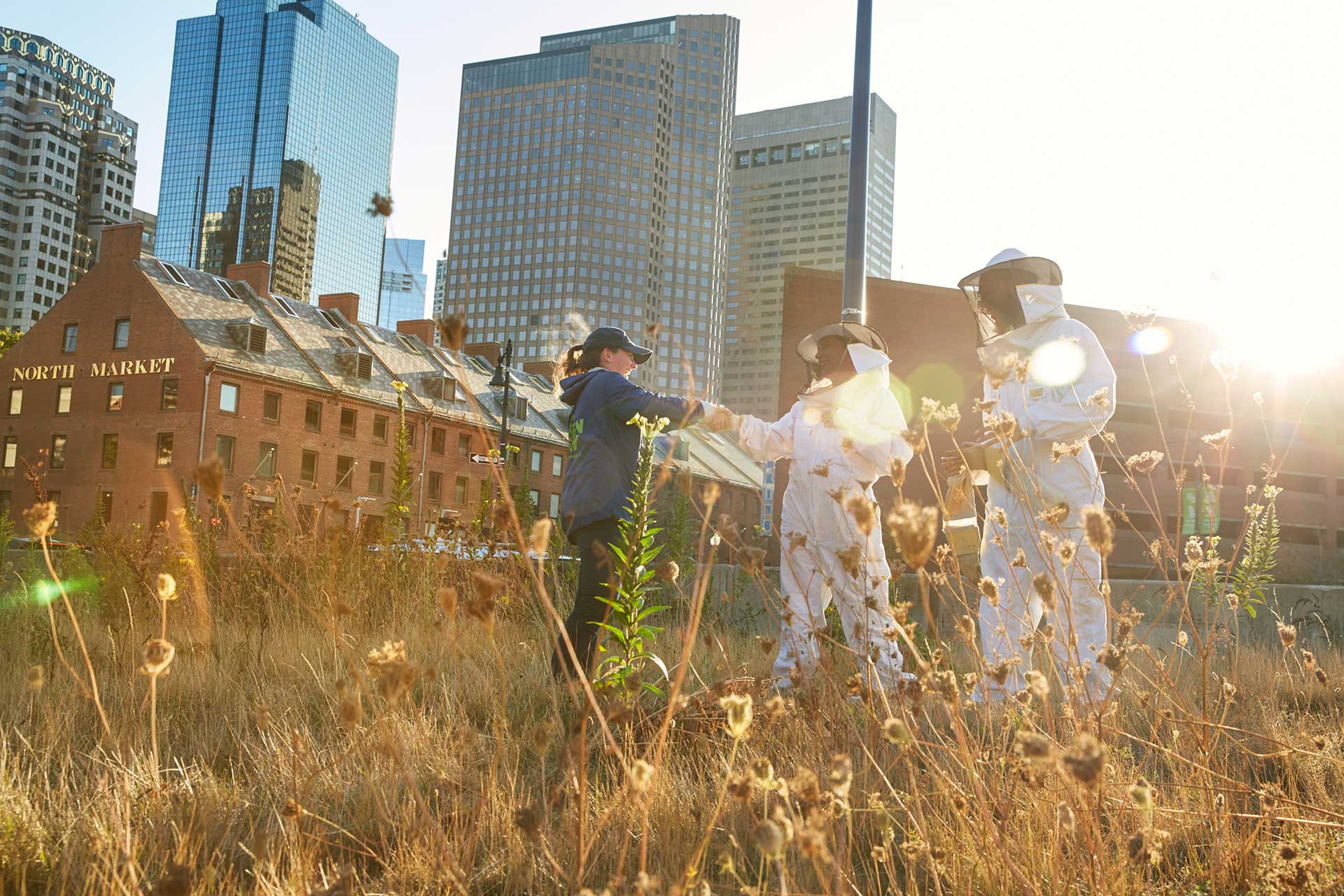


Unique Challenges and Opportunities to Beekeeping in Boston
Beekeeping Laws in Massachusetts
Unique Challenges and Opportunities to Beekeeping in Boston
The greatest challenges facing beekeeping in Massachusetts relate to weather. With global warming, the seasonal weather patterns in New England are changing, with longer, hotter, and often drier summers, and winters that can start later and end earlier. Winters are also less predictable, with wild swings between frigid conditions and thaws.
All of these can affect bees negatively, throwing off their brooding cycles, creating a disconnect between activity and available pollen and nectar, and reducing forage during crucial honey stockpiling times.
For our beekeepers, this means that they must carefully monitor bee health and honey stocks frequently throughout the year – even in times when bees would be dormant in other areas – to assure they have sufficient food supplies. Extreme winter weather can also contribute to higher-than-normal colony failure in northern metropolitan areas, such as greater Boston.
On the positive side, analysis of HoneyDNA from Boston area hives shows that native plants, such as clover, goldenrod, and holly, are among the top species pollinated, suggesting an abundance of natural food for honeybees in Massachusetts.
This is especially true of urban hives, where our HoneyDNA studies have shown an incredibly diverse range of species for bees to pollinate – one reason urban hives have proven so healthy here in Massachusetts. This is not surprising, given that Boston has been a national leader in the urban green space movement since Victorian times.
Beekeeping Laws in Massachusetts
Permits to keep honeybees in Massachusetts are not required by the Commonwealth but may be necessary in some municipalities. Where permits are mandatory, such as in the City of Cambridge, Best Bees takes care of permitting for its clients. A few municipalities, such as New Bedford, still prohibit beekeeping.
Some Massachusetts municipalities have regulations regarding placement of beehives, with specific distances required from abutting property. Where applicable, Best Bees beekeepers will site hives accordingly.
Massachusetts has regulations regarding the transportation of bees and used bee equipment into the state and requires a certificate of health inspection from the state of origin within 60 days of shipping stating that the bees or equipment are free of infectious or contagious disease. All bees brought to Massachusetts by Best Bees comply with this.
Hive inspections are not required in Massachusetts, but hive owners are encouraged to register their hives with the Massachusetts Department of Agricultural Resources (MDAR). As proponents of the scientific study of bees, we register all of our own hives, but leave it up to our clients to register theirs if they wish.
All of our beekeepers are licensed to use pesticides and are certified for safe roof-top work.
About Local Honey
Honey production varies from colony to colony, depending on the strength of the queen, the health of the hive, and the availability of nourishment. New colonies tend to produce less honey than established ones. When there is a surplus of honey, we will harvest and jar it for you.
The composition and flavor of honey varies from hive to hive as well, depending on the floral species available to pollinate. This means that honey from your hive will have a unique profile. Tasting it, you are tasting the composite of all the flowers your bees have visited.
In our studies of HoneyDNA, we've found that honey from urban hives includes a much wider range of species – as much as eight times more than honey from rural and suburban hives!
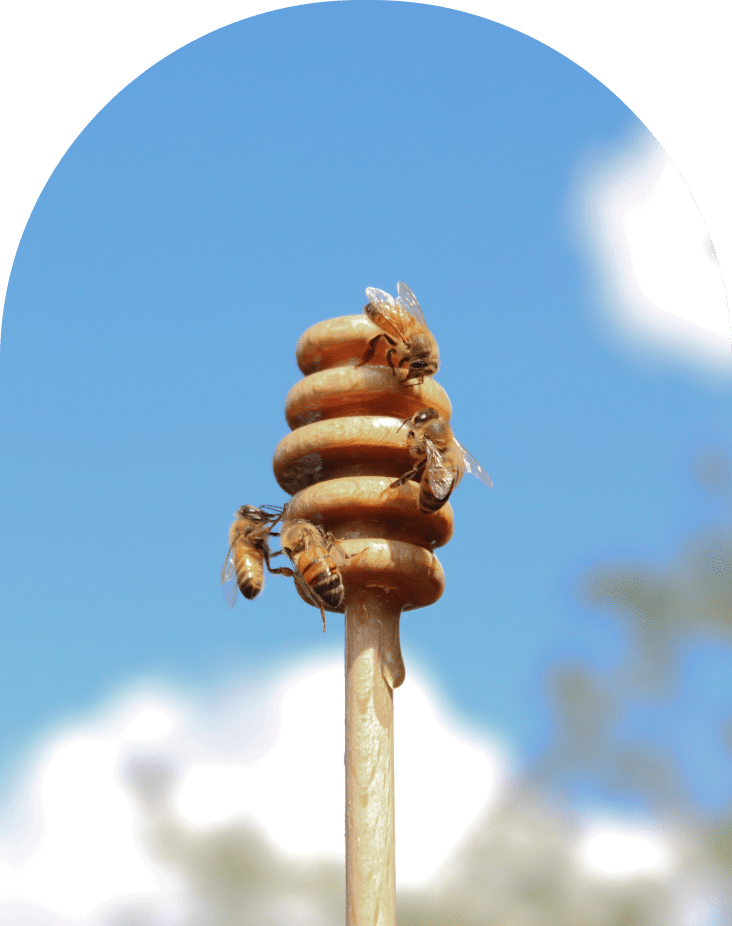
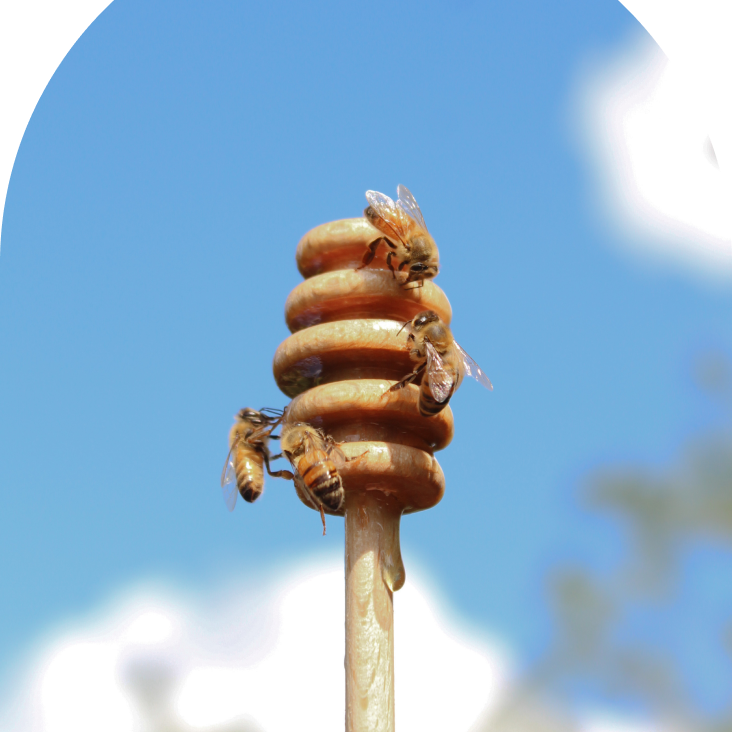
The composition and flavor of honey varies from hive to hive as well, depending on the floral species available to pollinate. This means that honey from your hive will have a unique profile. Tasting it, you are tasting the composite of all the flowers your bees have visited.
In our studies of HoneyDNA, we've found that honey from urban hives includes a much wider range of species – as much as eight times more than honey from rural and suburban hives!
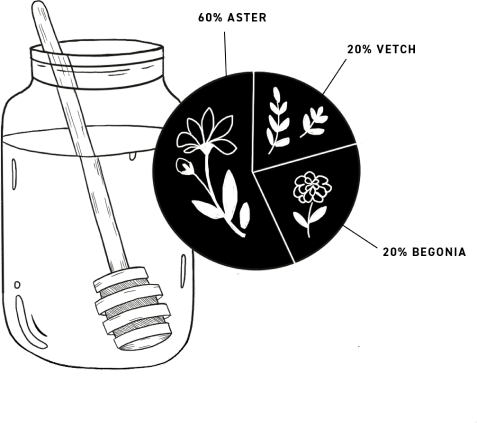
HoneyDNA
We pioneered the process of identifying the exact percentage of various pollen species found in honey through advanced genomic sequencing. Understanding where bees foraged reveals which plants best feed pollinators in the local environment.
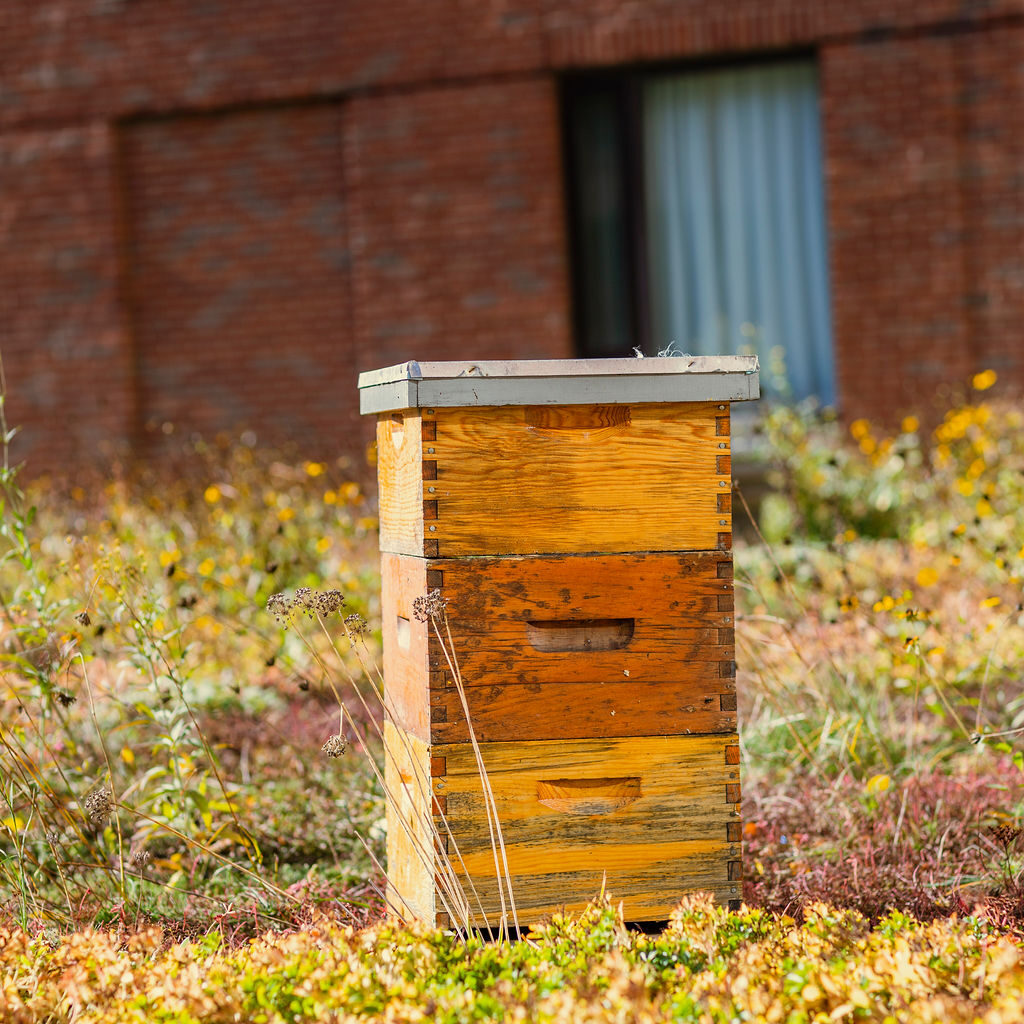
Already Have a Hive?
At Best Bees, we're proud to be a part of the local beekeeping community in every area in which we work. If you are not already a member of the Massachusetts Beekeepers Association, we strongly encourage you to join. You can learn more about them at massbee.org.
Join our Citizen Scientist movement! Here are some ways you can participate:
- Plant more pollinator habitats on your property
- Use bee-safe pesticide alternatives
- Get involved in local and national lobbying
- Submit your honey for HoneyDNA
You can also post your data to bee Citizen Science programs like iNaturalist and Beecology Project.
We gladly share the learning from our research and our best practices with everyone. To learn more about the findings of our research work, review our white papers.
To watch one of the TED Talks by our Founder and Chief Science Officer Dr. Noah Wilson-Rich, visit our Research page.
To stay abreast of our latest thinking, read our blogs!
Testimonials
Since our founding in 2010, the knowledge and expertise of our beekeeping and customer service teams has helped us build a loyal following among both our commercial and residential customers here in the Boston area. These are a just a few examples of what they have to say about working with us:
Safe
Our honey bees, Apis mellifera ligustica, are the most docile species of honey bees, making our hives extremely safe and the instance of stings very unlikely.
Insured
We have a full insurance policy and can provide a Certificate of Insurance (COI) easily.
Experienced
Our beekeepers are trained to work safely in densely populated urban areas. This includes on balconies, rooftops, and skyscrapers.
Frequently Asked Questions
We provide you with a report on each hive, after every beekeeping visit. These reports include statistics on hive size and health, quantity of honey stores, and the presence of pests and pathogens. If you take advantage of our DNA analysis service, we will provide you with a detailed analysis of the different plant species your bees are pollinating, and the amount each contributes to your honey. The reports, and aggregate learnings across all of our hives, are a testament to your commitment to promoting biodiversity and improving the health of the environment.
We stock our hives with Apis mellifera ligustica, a species of honey bee bred for docility, place them in low-traffic areas and service them with highly trained, locally certified professional beekeepers. Our beehives and beekeepers are fully insured for personal liability and damage. We can provide you with a certificate of insurance (COI) if needed.
It's not essential that forage be immediately available to your bees, as they can travel as much as four miles to find food and water. That said, local sources of nourishment require less energy consumption for bees and make for healthier hives. Most of our clients add pollinator gardens, and rethink their landscaping, once their bees are established and have become an integral part of their corporate family. Pollinator gardens and pollinator friendly landscaping help to beautify your property, provide oases of calming nature for employees and tenants, and can improve your building's LEED certification rating.
We have over 500+ corporate clients, representing industry leaders as Beacon Capital Partners, Four Seasons Hotels, Harvard Business School, JPMorgan Chase, L'Oreal, MIT/Media Lab, and Whole Foods.
There are many creative ways we can work together to engage your stakeholders in beekeeping, and through beekeeping, in your company's ESG initiatives. These include programs such as educational workshops, virtual hive tours, meet-your-beekeeper sessions, keynote speakers, branded hives, signs & honey, as well as events that feature pollinators and honey-based foods and beverages.
Beehives take up very little space – about 8 square feet, and require a footprint of no more than 16" x 22" x 40".
Hives can be installed in any low-traffic area, including rooftops, courtyards, gardens areas, and landscaped grounds. For healthier colonies, we usually place hives where they will get some morning sun, and be protected from high winds. All hive placements will comply with state and municipal requirements. For more information, read our hive placement informational guide.

